WINTER BEES
I was cleaning dishes on the tenth day of January around noon and when I looked through the open kitchen window at some point, I was quite surprised to see a few bees buzzing around the small wildflowers on my lawn.
Some of those buzzers were real bees, others were bee-mimicking flies.
This opening picture shows a European honey bee (Apis mellifera) on the right and a syrphid fly Eristalis tenax on the left.
Both species are enjoying the nectar produced by the common dandelion flower (Taraxacum officinale).
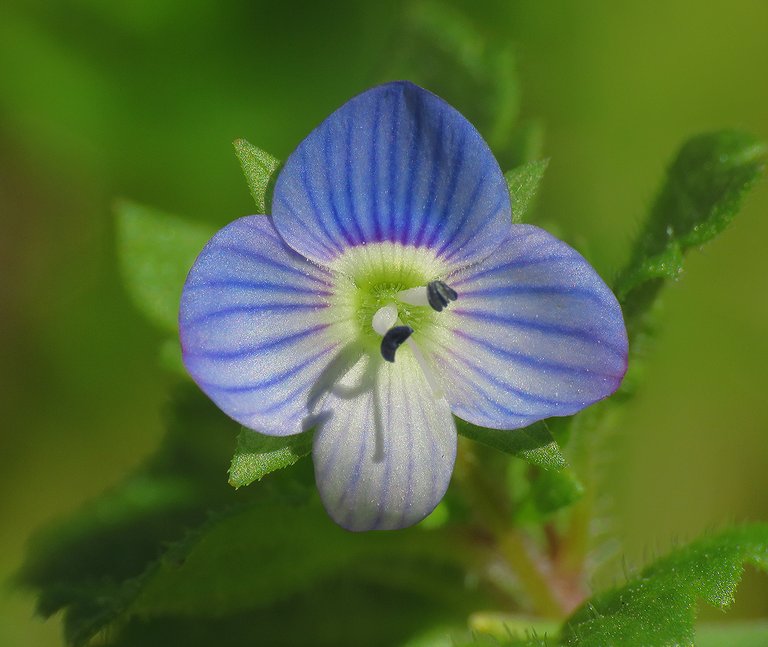
Bees and flies were visiting two types of flowers on that sunny winter day. The Taraxacum officinale mentioned earlier and the much smaller Veronica persica shown in this shot.
Here you can see the Veronica persica flowers photographed from different angles.
Honey bees are a bit heavy for these small flowers on fairly soft, gracile stalks so they look clumsy while collecting the nectar.

Here can you see yet another bee hanging on the flower.
In this set of four photographs, each bee is more or less on the top of the flower. That's becouse each shot was taken in a fragment of a second before the bee ended up hanging on the flower at the end of a bent stalk.
The flies are the same size, or even slightly bigger than the bees, but it seems that their body constitution is surprisingly lighter. The Eristalis tenax shown in this photograph is feeding on the small flower quite comfortably.
In the following shot ...
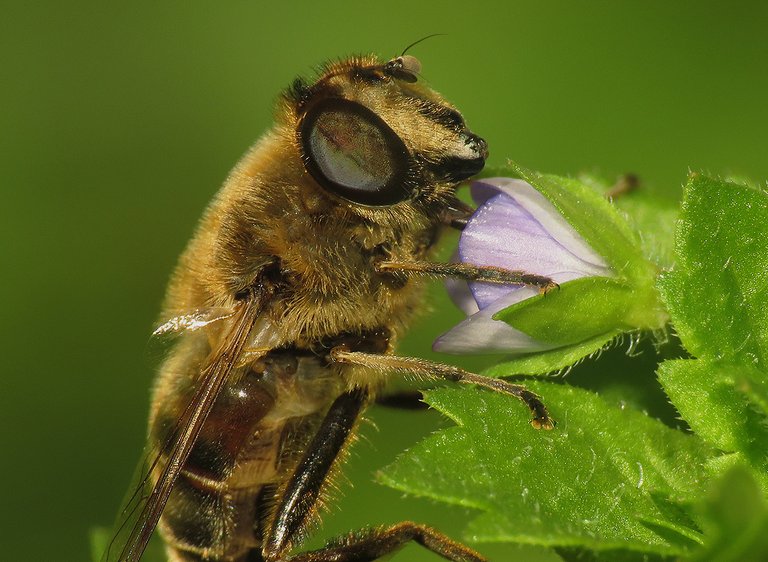
... I came closer to the fly.
Here you can see a bee on a dandelion flower.
Through this set of nine photographs, you can observe the same bee collecting the nectar by circling the center of the flower.
Here you can see a fly feeding on the same kind of flower in a similar way.
This bee has accumulated a nice amount of pollen on its hind legs.
Here you can see the same bee in various poses while circling the center of the flower.

Here you can see a bee on the Veronica persica flower. This one also has a pellet made of orange-colored pollen mixed with a bit of nectar.
In the following photograph ...
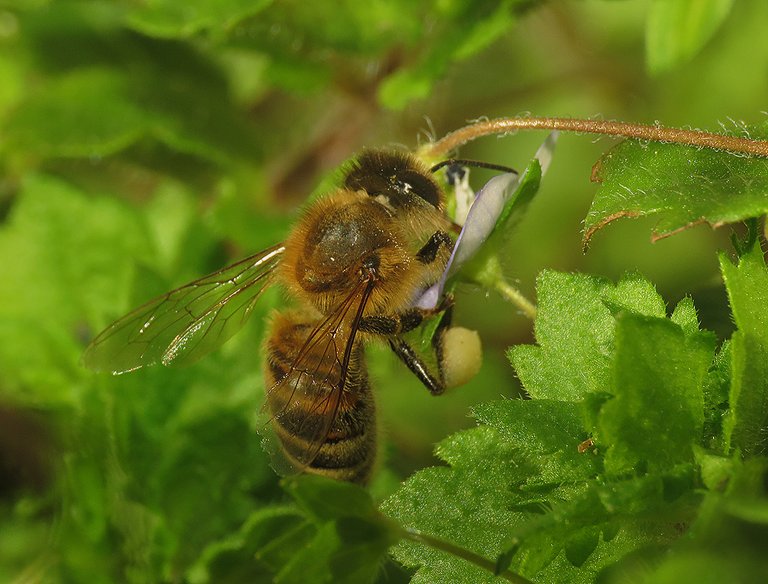
... you can see a bee carrying a white pellet on its legs.
I also find a few tiny mushrooms there on the lawn while observing the flies and the bees buzzing around the flowers.
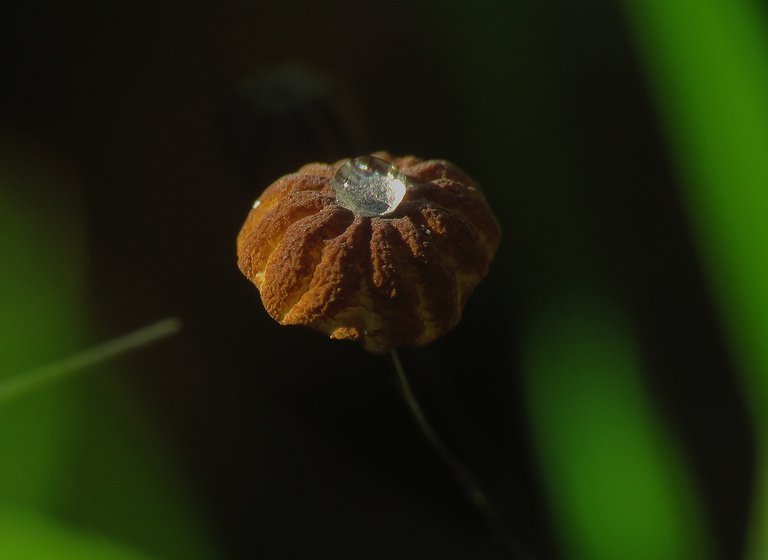
One of those slightly dry and shriveled mushrooms ...
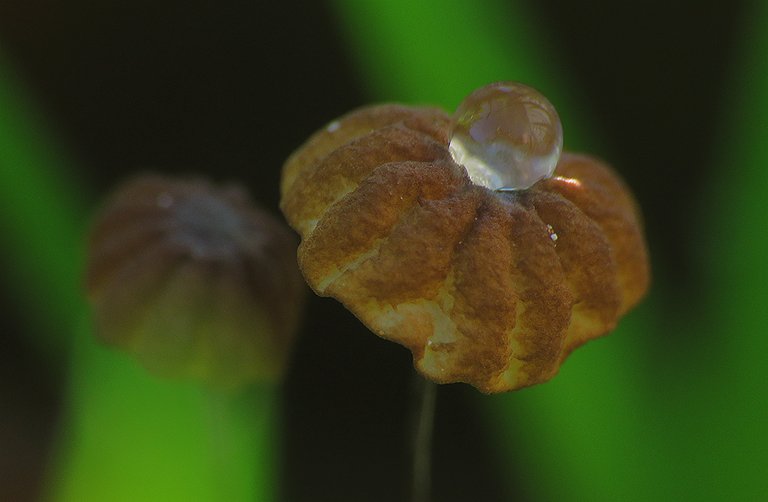
... had a dew drop on the top of its cap.
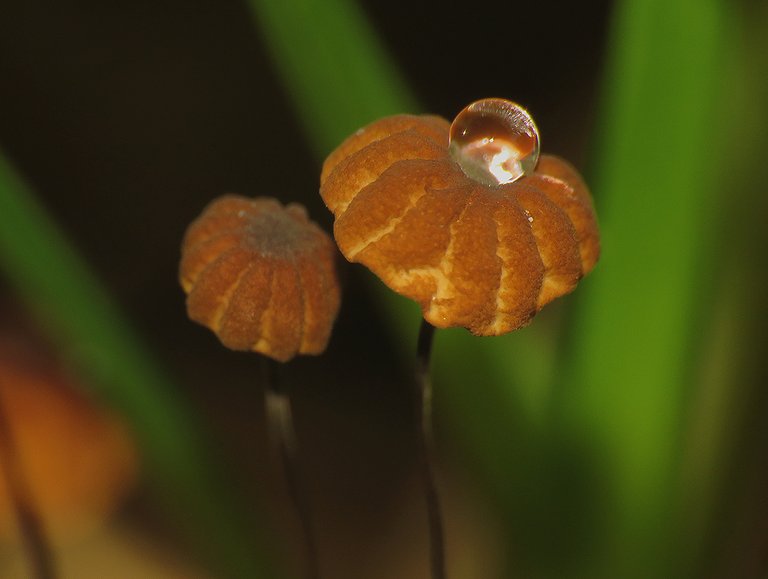
Marasmius siccus is the scientific name of this fungus from the Marasmiaceae family.
Here you can see a Marasmius siccus that hasn't shriveled yet.
In the following photograph ...
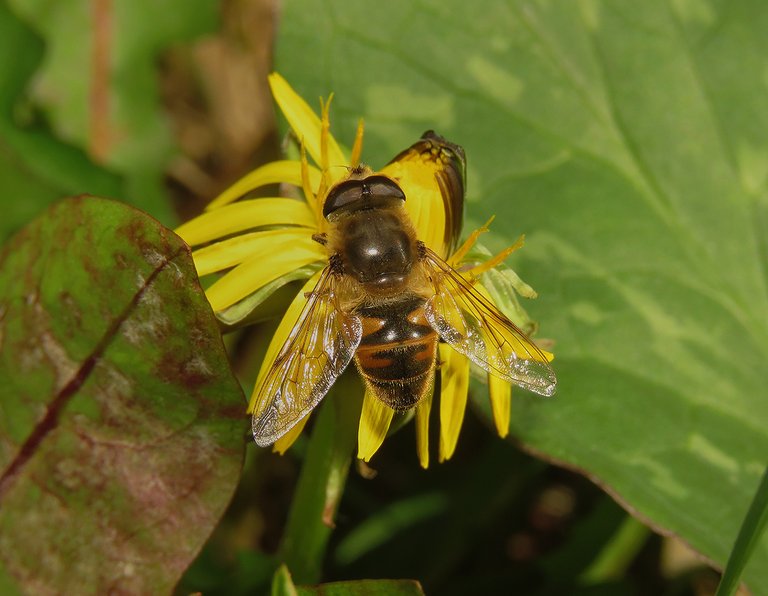
... yet another Eristalis tenax fly is posing on yet another dandelion flower.
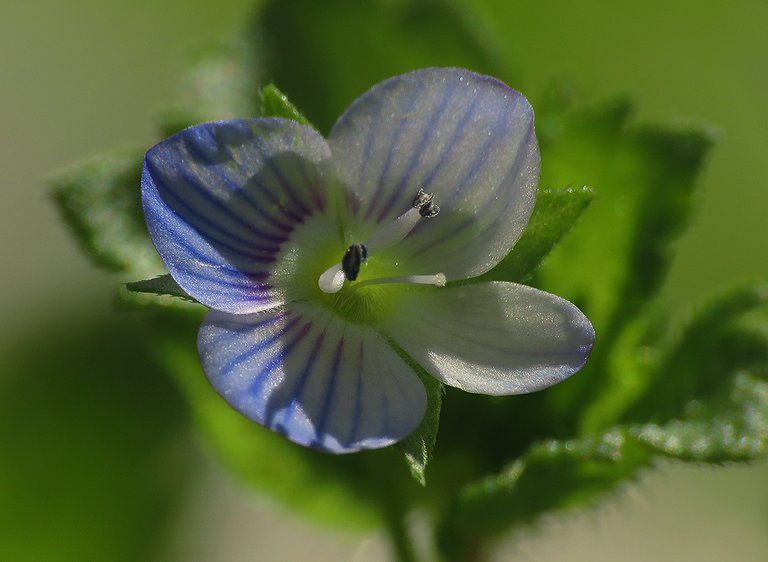
Here you can see a portrait of yet another Veronica persica flower.
In the following shot ...
... two flowers of the same kind are posing together.
Through this set of six photographs, you can watch another Eristalis tenax circling the center of the dandelion flower while feeding on nectar.
Among many Veronica persica and Taraxacum officinale, I found only one Bellis sylvestris flower. This plant is commonly known as the southern daisy.
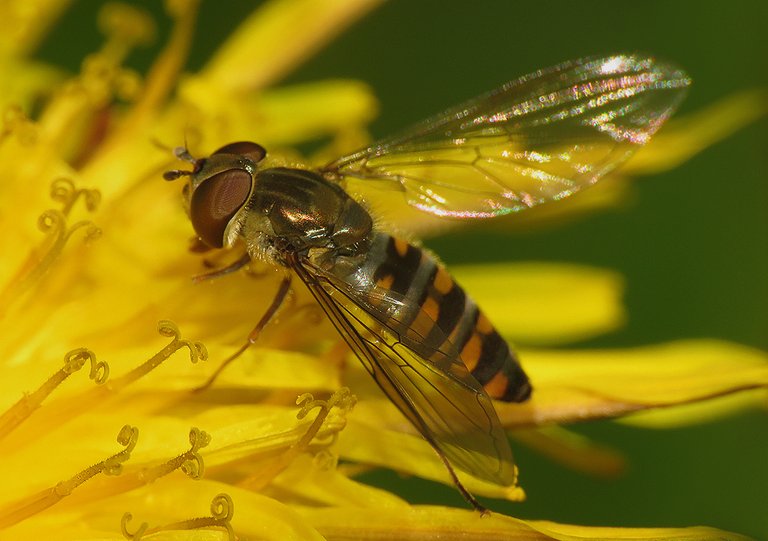
On another dandelion, I found a different kind of syrphid fly. The name of this species is Episyrphus balteatus.
Here you can see yet another Eristalis tenax.
This is yet another Apis mellifera.
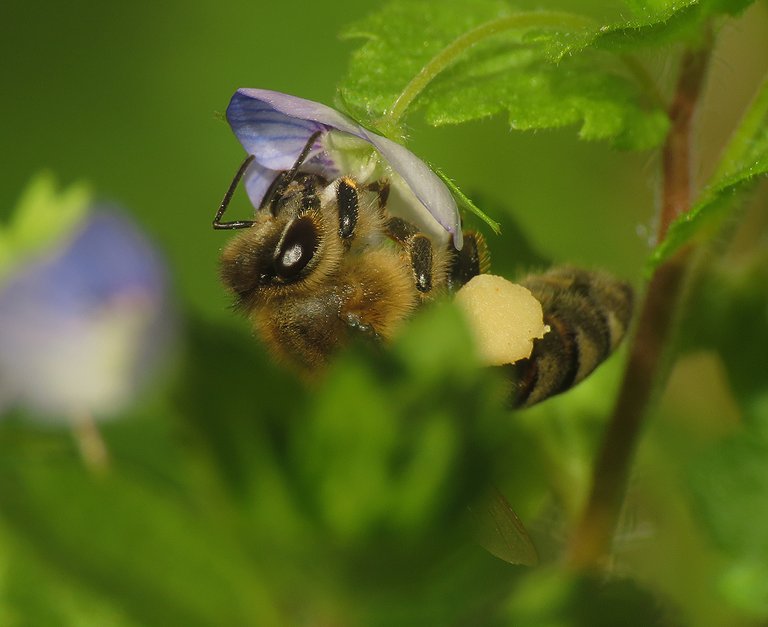
In this last shot, a bee is seen hanging on the flower through a bit of blurred vegetation in the foreground.
AND THAT'S IT. AS ALWAYS HERE ON HIVE, THE PHOTOGRAPHS ARE MY WORK.
The following links will take you to the sites with more information about the protagonists of today's post. I found some stuff about them there.
https://en.wikipedia.org/wiki/Eristalis_tenax
https://en.wikipedia.org/wiki/Western_honey_bee
https://en.wikipedia.org/wiki/Taraxacum_officinale
https://en.wikipedia.org/wiki/Marasmius_siccus
https://en.wikipedia.org/wiki/Bellis_sylvestris
https://en.wikipedia.org/wiki/Episyrphus_balteatus



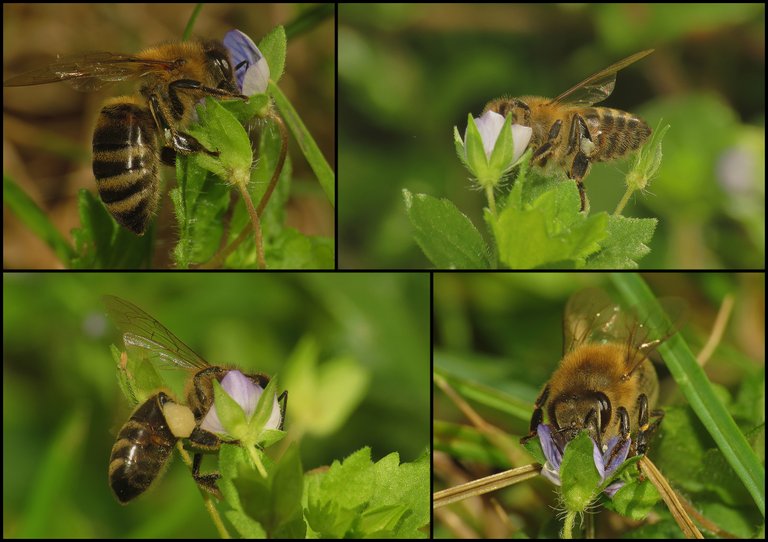

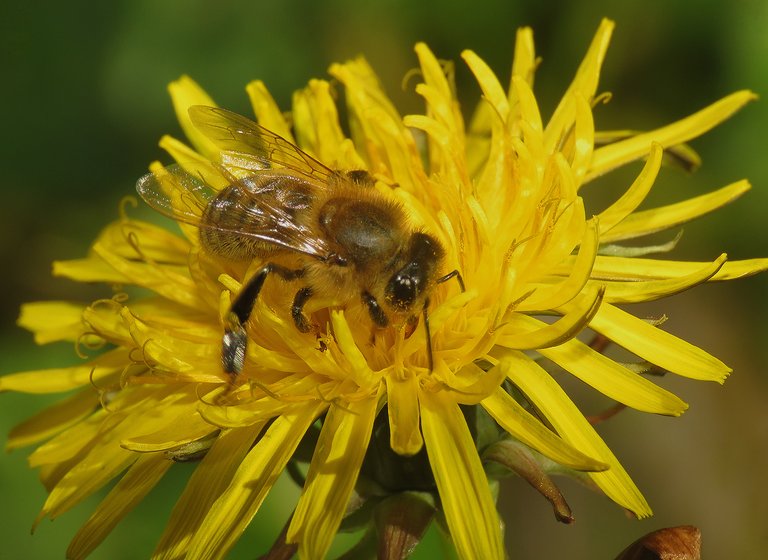
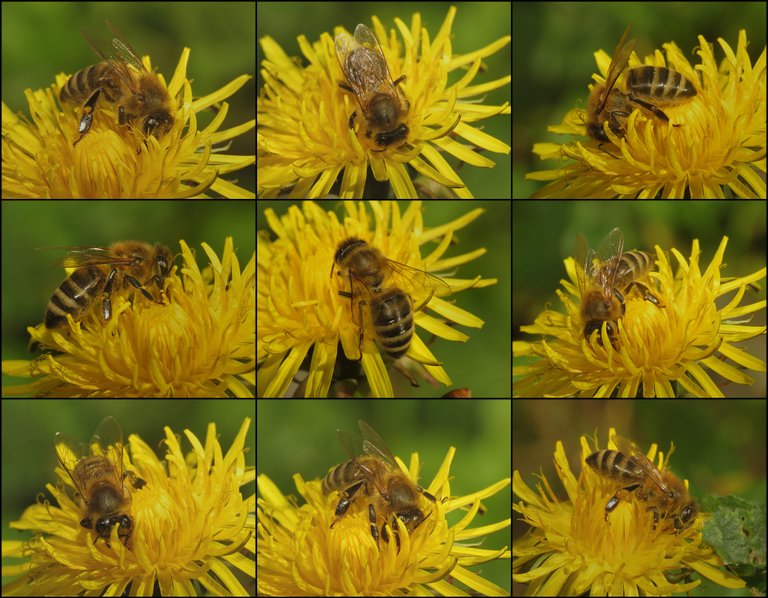

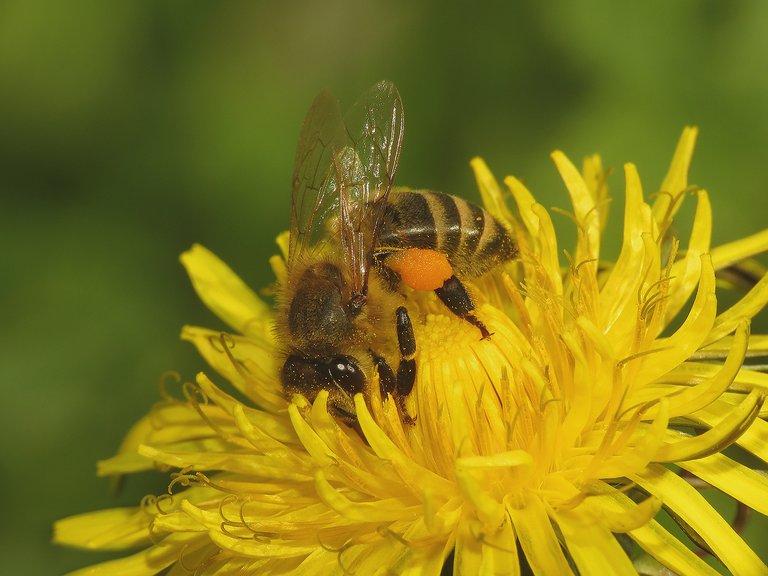

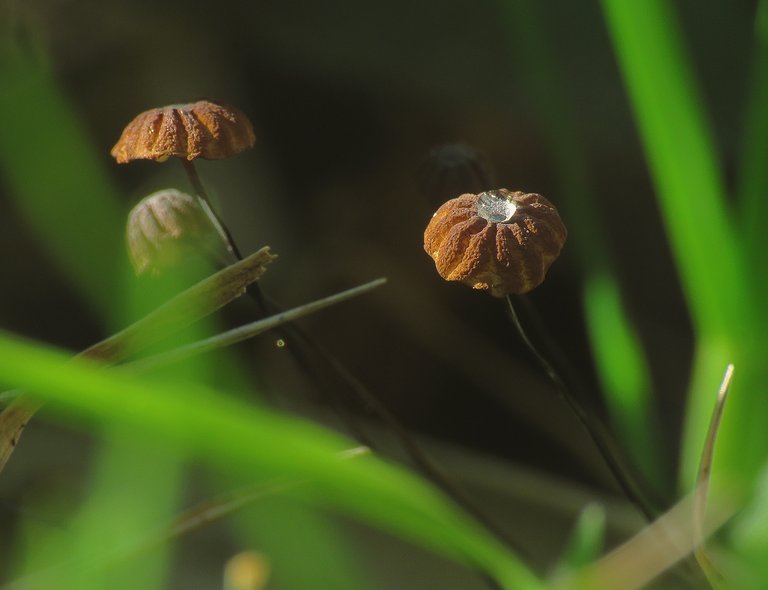
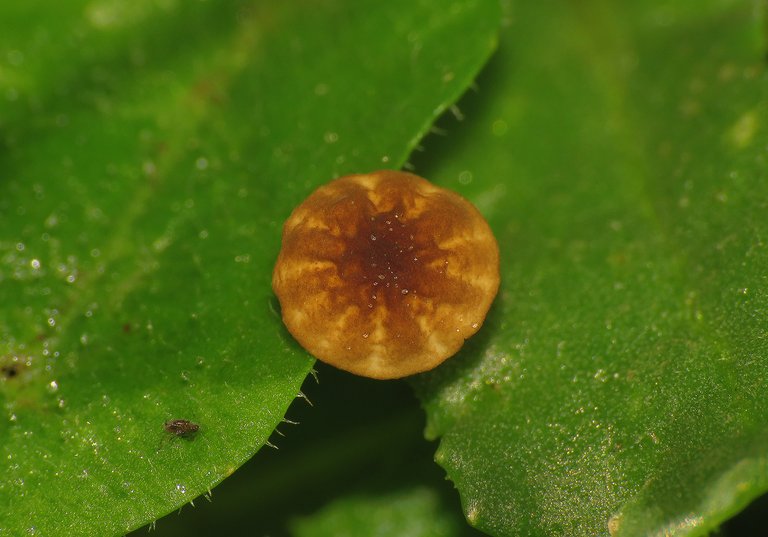
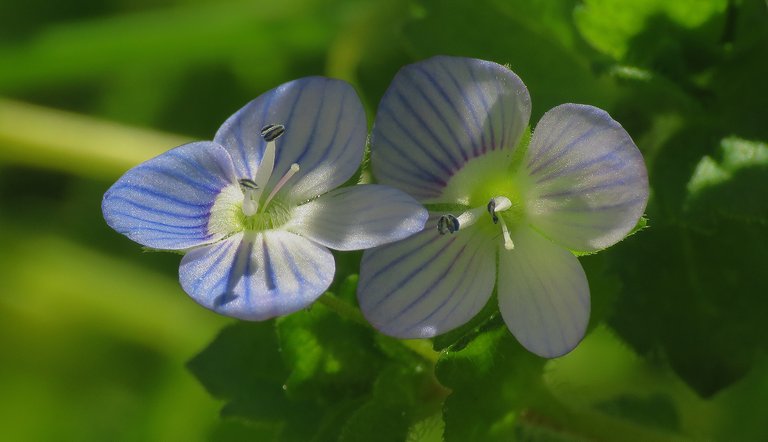

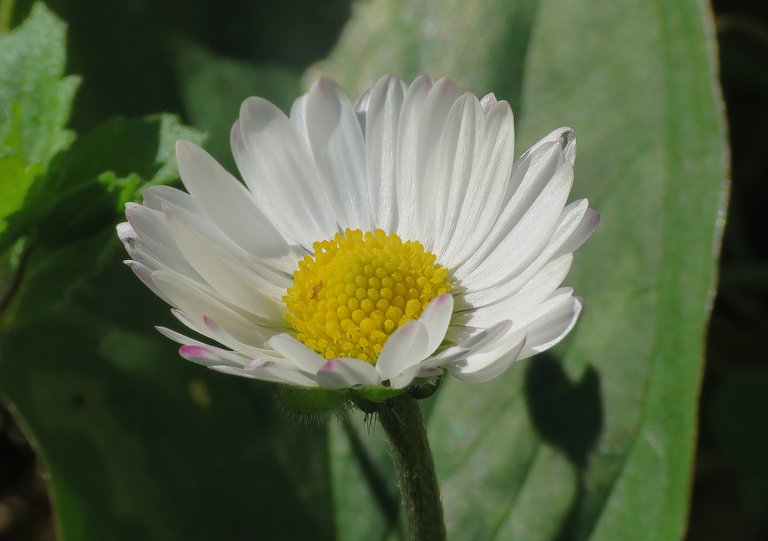
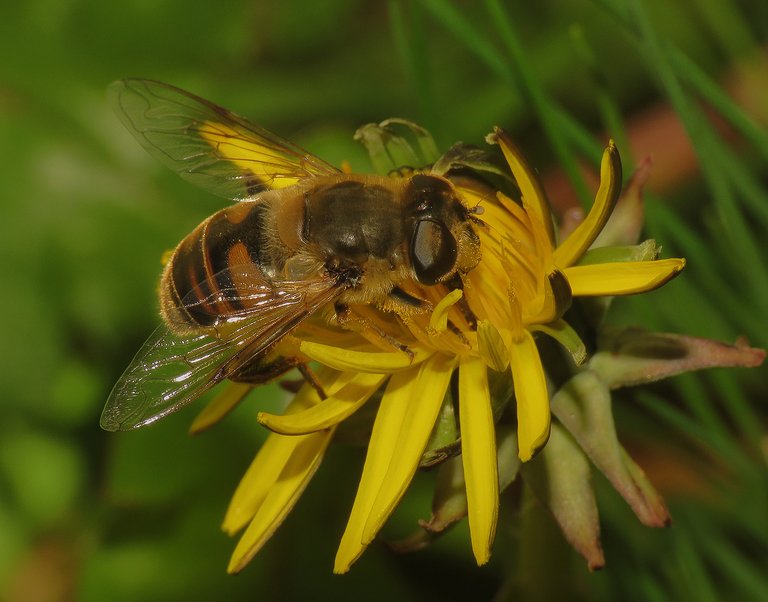

In the green background blue flower with bee looks outstanding 😄
So radiant that the flowers are just right flowers for pollination and the bees are having a wonderful time doing their job.
That mushroom with a drop of water is dead gorgeous.
Yes, nature is quite spectacular even in the smallest things.
Flies and Bees on January 😂
Nice pictures bro🔥
Wow!! I never knew Bees were this beautiful, thanks for sharing.
😃😃
BUZZZZZZ! BUZZZZZZ! said all the very busy Bees !LOL 🐝🐝🐝
lolztoken.com
I wonder what she’s up to now.
Credit: reddit
@borjan, I sent you an $LOLZ on behalf of fun.farms
(1/10)
Delegate Hive Tokens to Farm $LOLZ and earn 110% Rewards. Learn more.
Wow
You love to take pictures for you to have left your kitchen so you can come take these pictures
All the pictures are cute
I love them!
The green flower in the background is looking so astonishing and shining so bright
@tipu curate :)
Upvoted 👌 (Mana: 65/75) Liquid rewards.
That's all interesting amazing and as usual I haven't know much about that species specially about mushroom but I learned now. Thanks
Mushroom is looking adorable
These photographs seems to be a good arrival of spring and bees looking so beautiful and this flower has very showy , and attractive color which is suitable for bees to came and collect the nectar.
Drop on the mushroom is also gives fresh feeling.
The PHOTOGRAPHY work over here is really top notch I must truly confess. You really did amazing work capturing this all
Yes!... You are a wizard at making macros!.... Everything looks so vivid in these photos!
!discovery 40
!VSC
!PIZZA
!BBH
@jlinaresp has sent VSC to @borjan
This post was rewarded with 0.1 VSC to support your work.
Join our photography communityVisual Shots
Check here to view or trade VSC Tokens
Be part of our Curation Trail
@jlinaresp ha enviado VSC a @borjan
Éste post fue recompensado con 0.1 VSC para apoyar tu trabajo.
Únete a nuestra comunidad de fotografía Visual Shots
Consulte aquí para ver o intercambiar VSC Tokens
Se parte de nuestro Trail de Curación
@borjan! Your Content Is Awesome so I just sent 1 $BBH (Bitcoin Backed Hive) to your account on behalf of @jlinaresp. (1/5)
Thank you. 🙂 That's a big compliment.
This post was shared and voted inside the discord by the curators team of discovery-it
Join our Community and follow our Curation Trail
Discovery-it is also a Witness, vote for us here
Delegate to us for passive income. Check our 80% fee-back Program
$PIZZA slices delivered:
@jlinaresp(7/10) tipped @borjan
Nice shoots.
Bees are nature's grace! so much important animals!~Nice pictures you had the opportunity to take!! congratulation
Want to Know more about Hivepakistan?
Ping Us On Hive Pakistan Discord server
To support HivePakistan, delegate Hive Power to hivepakistan and earn 90% curation reward :)
Here are some handy links for delegation
A delegation of 500 or more HP makes you earn Hivepakistan supporter badge.
🙂
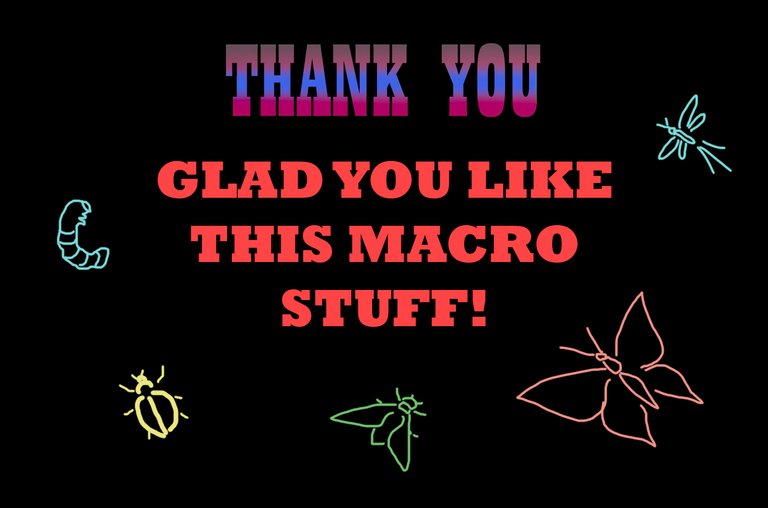
All bees sleep here... 😉
😀 They are allowed a prolonged rest in your part of Europe. Here the poor things must work outdoors even in winter from time to time.
So, they don't sleep actually. But yes, they need a bit warm to fly out from the hive. The snow felt last night here, but the temperature is 2°C now.
Here was around zero only for a couple of days and only in the morning. Mornings are still relatively cold but at noon it felt and still feels like springtime.
Congratulations, your post has been upvoted by @dsc-r2cornell, which is the curating account for @R2cornell's Discord Community.
https://twitter.com/lee19389/status/1755233234387182009
#hive #posh
https://twitter.com/jewellery_all/status/1755337202794471524
The display of small animals is very beautiful.
Interesting repertoire of photos of these bees, each of them fulfilling their important tasks in the pollination of plants. The other attractive point of this post were the flies (Diptera) that have the interesting strategy of imitating bees in morphological matters, so they can deceive any aggressor. Your posts are always very enjoyable because of your very detailed photographs, a pleasure to read you once again and thanks for sharing your photos.
🙂
These industrious little rascals! Wondering how the world is? A few years ago they were dying out. I have seen in my own garden that in 2023 I had an unusual amount of bees.
The photos are completely...
Yes, here also bees were relatively numerous last year.
The shot of the Episyrphus balteatus fly is stunning. The iridescence of the wing and the color of the thorax, plus the detail of the dandelion. Just lovely.
Wow, those are a lot of insects in just one place 👍
🙂 It was quite surprising to see them in winter.
Well, looks like spring 🤭🤭🤭
👍😀👍 Yes, winter this year wasn't much of a winter.
Well, I don't know if that's good or bad but since I don't like cold weather I'll say it's good 😂😂😂🤷🏻♀️
This post was curated by the Visual Shots Team
Join to our Discord Channel
Be part of our Curation Trail
| 25 HP | 50 HP | 100 HP | 200 HP | 500 HP | 1000 HP |